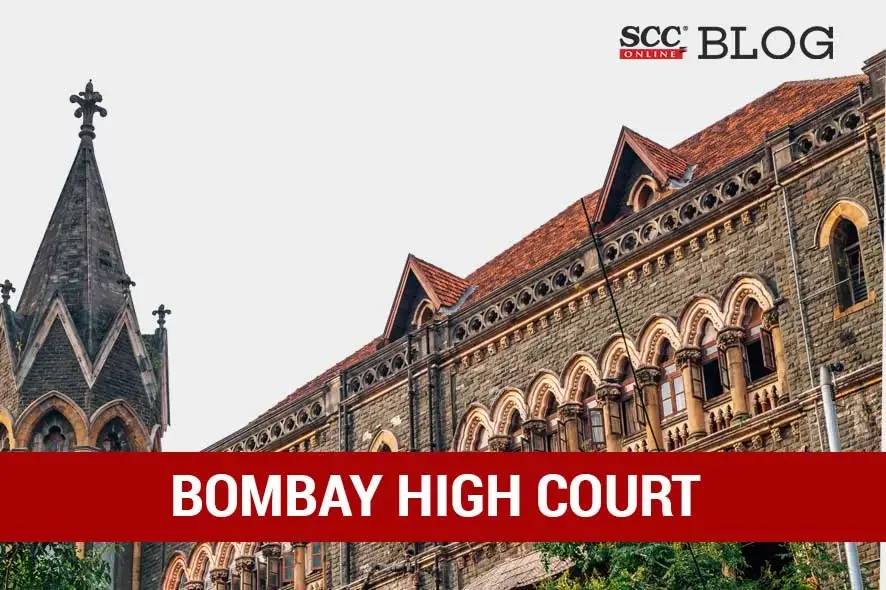Bombay High Court: In a petition challenging detention order passed by the Joint Secretary to the Government of India on 17-05-1993 in exercise of powers conferred under Section 3(1) of the Conservation of Foreign Exchange and Prevention of Smuggling Activities Act, 1974 (‘COFEPOSA Act’), and the orders of the Under Secretary confirming the same in exercise of powers conferred under Section 8(f) of the COFEPOSA Act with directions for detention of the petitioner for 1 year from the date of his detention (28-02-2023), the Division Bench of Revati Mohite Dere and Gauri Godse*, JJ. quashed the said detention order due to unexplained and inordinate delay in execution of detention order.
The Court perused the detention orders which indicated that the detaining authority relied on the search and seizure proceedings under Section 34 of Foreign Exchange Act, 1973 (‘FERA’) and the statements recorded under Section 40 of FERA after apprehension of a person on 20-11-1992 at the Mumbai Airport while he was leaving for Dubai with substantial amount of foreign currencies concealed by him, believing that the petitioner was engaged in unauthorized acquisition of foreign exchange and transferring the same surreptitiously out of India, violating the provisions of FERA.
The Court highlighted that the detention order dated 17-05-1993 was served upon the petitioner on 28-02-2023. In furtherance of opinion of the Central Advisory Board, the Under Secretary to Government of India exercised powers under Section 8(f) of COFEPOSA Act and confirmed the detention order while issuing further directions for 1 year detention.
The Court examined whether all possible steps were taken to serve the detention order on the petitioner. It noted that the authorities relied upon a report dated 15-12-1993 submitted by the Assistant Commissioner of Police (Crime) Branch (PREV) CID which indicates that multiple visits were made in 1993 by the officers and staff for tracing the petitioner, whose house was found locked. Thus, the detention order was returned unexecuted, and it was ‘recommended to issue a proclamation’. Enquiry report of 5-08-1993 by Assistant Enforcement Officer also indicated the aforementioned reasons.
Further, the order dated 9-02-1994 indicated that the Under Secretary to the Government of India exercised power under Section 7(1)(b) of COFEPOSA Act directed the petitioner to appear before the Commissioner of Police within 7 days of publication of the said order. However, the Court was not convinced that publication of order as per Section 7(1)(b) of COFEPOSA Act would amount to sufficient compliance of service of detention order upon the petitioner, in the absence of any attempts to serve the detention order as per Section 7(1)(a) of COFEPOSA Act. The Court also pointed out that no steps were taken to issue proclamation after letter dated 15-12-1993 issued by Assistant Commissioner of Police. Also, no affidavit was filed by the State of Maharashtra regarding possible steps taken to serve the detention order upon the petitioner.
The Court pointed out the lack of efforts on the part of the detaining authority to make an inquiry or to trace the petitioner’s whereabouts at any address other than that of the available address of Mumbai. It further stated that after publication of order on 9-02-1994, no steps were taken for execution of detention order. It said that “In the absence of all the possible steps taken to serve the detention order upon the petitioner, the detaining authority is not justified in executing the detention order after thirty years on the ground that the petitioner was absconding. The detaining authority gives no satisfactory explanation for not executing the order of detention passed in the year 1993 for a period of thirty years.”
As against the contention that the publication of gazette notification was sufficient to presume that the petitioner had the knowledge of the detention order, the Court referred to Shafiq Ahmad v. D.M., (1989) 4 SCC 556 wherein, unexplained delay in execution of detention order was knocked by the Supreme Court. The Court applied the said principle in the instant case pointing out that except for explaining the steps taken to serve the detention order at the available address, there was no other explanation.
The Court explained that the detention under COFEPOSA Act was aimed at prevention of a person acting prejudicially to the conservation, or augmentation of foreign exchange or prevention from smuggling goods, or abetting smuggling goods, or engaging in transporting or concealing, or keeping smuggled goods, or dealing with the same, or harbouring a person engaged in such activities. It added that “there must be conduct relevant to the formation of the satisfaction having reasonable nexus with the petitioner’s action, which is prejudicial to make an order for detaining him.”
The Court was of the view that an ‘unexplained and inordinate delay of 30 years’ in the instant matter did not justify the preventive custody of the petitioner. Following the decision in Shafiq Ahmad (supra), the Court expressed that “the satisfaction of the authorities based on conduct must precede action for prevention based on subjective satisfaction.” It said that the action based on satisfaction of authorities was not commensurate with the current situation after 30 years of detention order, while there was no case of petitioner being engaged in any prejudicial or objectionable activity.
Therefore, the Court quashed and set aside detention order dated 17-05-1993 and 24-05-2023.
[Abdul Rasheed v. Enforcement Directorate, 2023 SCC OnLine Bom 2076, decided on 27-09-2023]
Judgment by: Justice Gauri Godse
Advocates who appeared in this case :
For Petitioner: Advocate Yadunath Bargavan, Advocate Ratna Bhargavan, Advocate Rahul Yadav, Advocate R Bhargavan
For Respondents: Additional Public Prosecutor M.H. Mhatre, Advocate Shreeram Shirsat, Advocate Adithi Rao, Advocate Tanveer Khan, Advocate Shekhar Mane Advocate Alkileshwar Sharma






